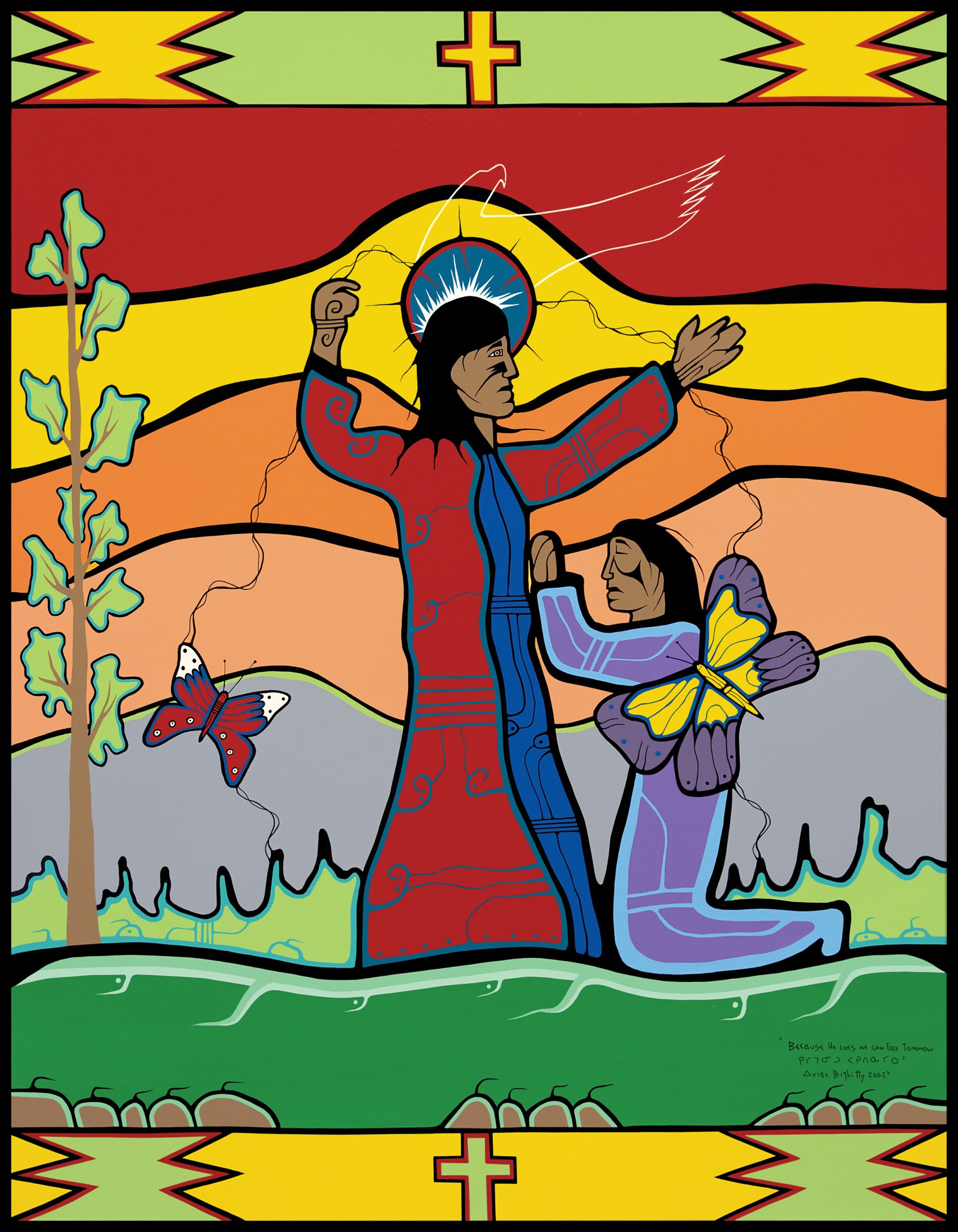Who Is Jesus?
Lesson Six

Who Is Jesus According to Hebrews?
I am a walker. I walk places. And thanks to seriously amazing technology, my steps are automatically tallied. As my walking routine becomes a daily ritual, something astonishing has transpired for this self-avowed non-athlete: I am not just a walker but now an occasional jogger. And during those amazing days when my body and spirit are delighted to take on the challenge, I can almost fly. But let me be frank. Too many days my walking regimen is a chore. Sleet stings. A mosquito bites. My patience wanes. A knee cracks. My companion canine strains the lead. The sun blinds. Shoes pinch. All I want to do on these cranky outings is quit to the nearest sofa.
Pondering this very blog on this morning’s walk I thought of Hebrew’s focus on perseverance. I honestly didn’t recall until I began typing this paragraph that the actual biblical text includes language about hands and knees and feet! Judy Siker writes, “Hebrews . . . seeks to strengthen and encourage this discouraged community. Perhaps Hebrews 12:12–13 puts it best: ‘Therefore lift your drooping hands and strengthen your weak knees, and make straight paths for your feet, so that what is lame may not be put out of joint, but rather be healed.’ In other words, be of good courage! God is on your side! We all need to hear this word of exhortation and encouragement at times, and Hebrews provides it throughout.” (page 59)
Perseverance and hope definitely make life run more smoothly because, let’s face it, some of the usual things we do on a daily basis can sometimes seem a bit overwhelming or not as fun-filled as snacking on a tray of brownies in front of the television. Whether attending class, showing up for work, laundering clothes, paying bills, chasing toddlers, dragging out the recycling, or participating in session meetings—all of these tasks, if left undone, would have disastrous consequences. Perseverance means we actually do things that need to be done. And hope? Hope says we do these things and will continue to do these things because our effort matters for that child, our church, our bodies, our household, our neighborhood, and our concerns. As Presbyterian women we just have to glance at the remarkable legacy left by our foremothers in faith who had an abundance of perseverance and hope but little political influence or money. These faithful women, in community, found ways to send missionaries, build clinics, and give voice to matters of great importance.
Perseverance and hope are more than good things to have for making do, but for those of us in difficult situations, they are of consequence. Can you imagine living in the deep darkness of a war zone without the glimmer of hope and the resolve to continue? Or dealing with a grave illness or an abusive relative? Or coping with extreme financial duress? Or being imprisoned by force or addiction?
On the Companion DVD, Judy Siker suggests that the book of Hebrews—like Revelation—may seem a bit foreign to modern readers but both books are books of hope. That’s right, Revelation too! Neither book promises the proverbial rose garden—life is difficult and often unfair—but with Jesus on the sidelines, having run this race before and because of us, ultimately, with our steady and faithful perseverance, all will be well at the finish line.
“Do you see what this means—all these pioneers who blazed the way, all these veterans cheering us on? It means we’d better get on with it. Strip down, start running—and never quit! No extra spiritual fat, no parasitic sins. Keep your eyes on Jesus, who both began and finished this race we’re in. Study how he did it. Because he never lost sight of where he was headed—that exhilarating finish in and with God—he could put up with anything along the way: cross, shame, whatever. And now he’s there, in the place of honor, right alongside God. When you find yourselves flagging in your faith, go over that story again, item by item, that long litany of hostility he plowed through. That will shoot adrenaline into your souls!” (Hebrews 12:1–3, The Message, Eugene H. Peterson)
I really respond to this imagery of a race! Reading further we are reminded that all of us on this path, no matter our situation or level of fitness, are called to cheer others on while making their way as safe as possible: “Clear the path for long-distance runners so no one will trip and fall, so no one will step in a hole and sprain an ankle. Help each other out. And run for it.” (Hebrews 12:12–13, The Message, Eugene H. Peterson)
“And run for it.” Let’s do this. Together. See you at the finish line!
***
I was honestly astonished how much I have enjoyed grappling with Hebrews. That’s why I’m truly looking forward to the 2017–2018 Horizons Bible study on the book of Hebrews, Cloud of Witnesses: The Community of Christ in Hebrews by Melissa Bane Sevier, with Suggestions for Leaders by Sung Hee Chang. Over nine lessons (with discussion questions, hymn suggestions, prayers, and “Cloud Witness” stories submitted by Presbyterian women) the author looks at nine major themes, relates these themes to our faith tradition, and ties them together with the overarching motif of community.
If you are a Horizons magazine subscriber, then you will receive your copy in March. If you are not a Horizons magazine subscriber, you may subscribe by April 1 to receive this study as part of your subscription. To subscribe, visit www.presbyterianwomen.org or call toll free 866/802-3635.
Carissa Herold
